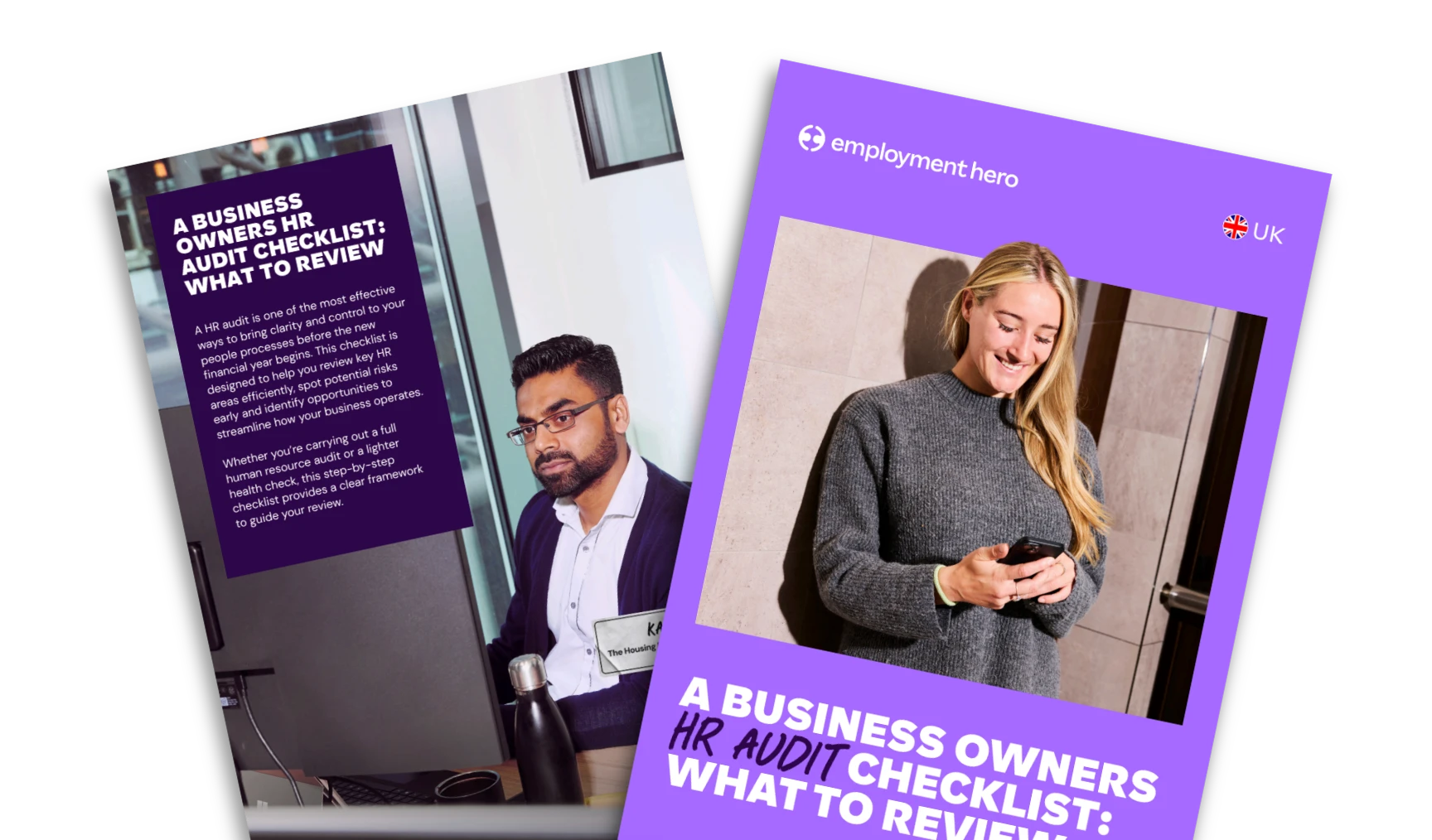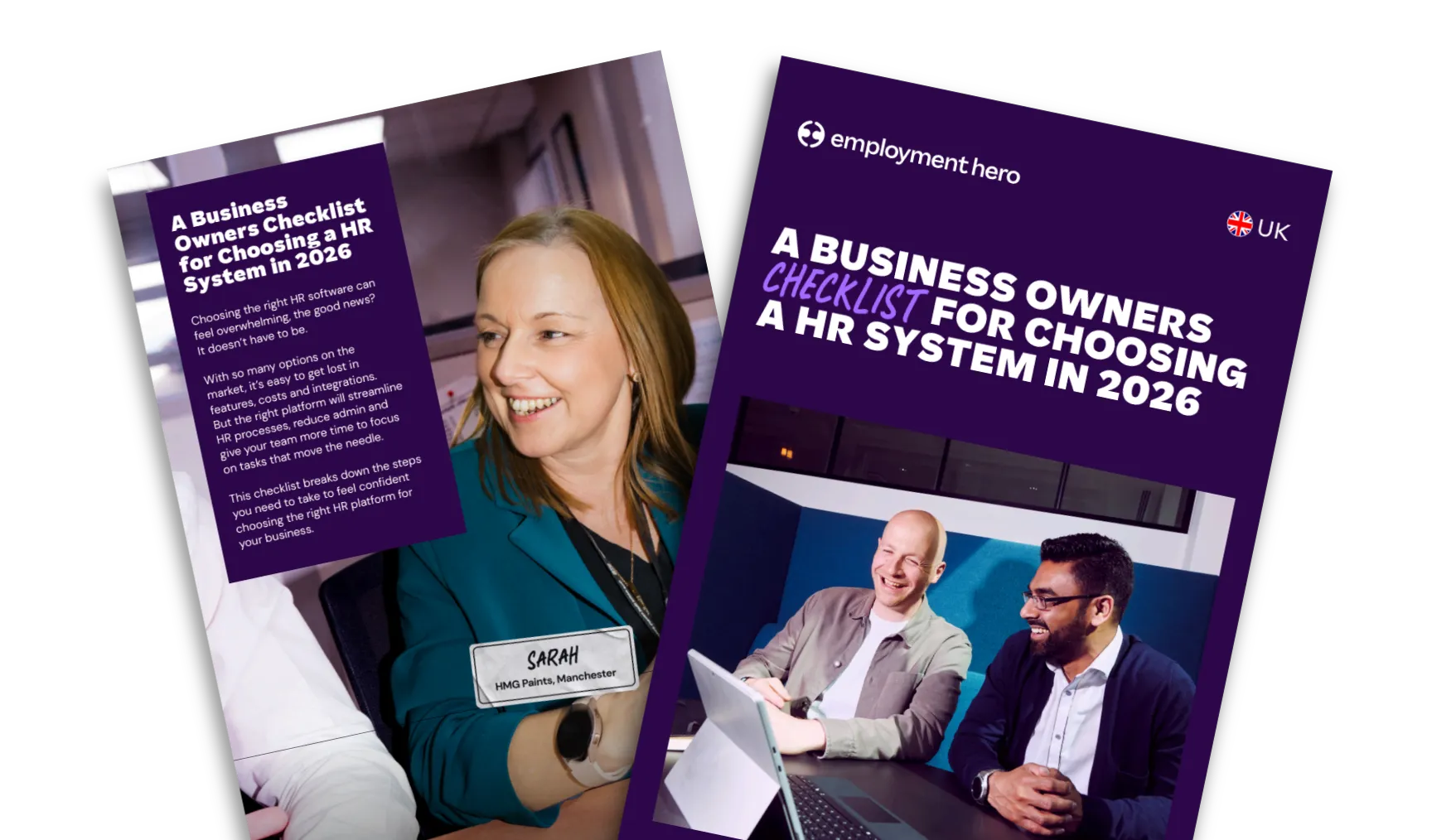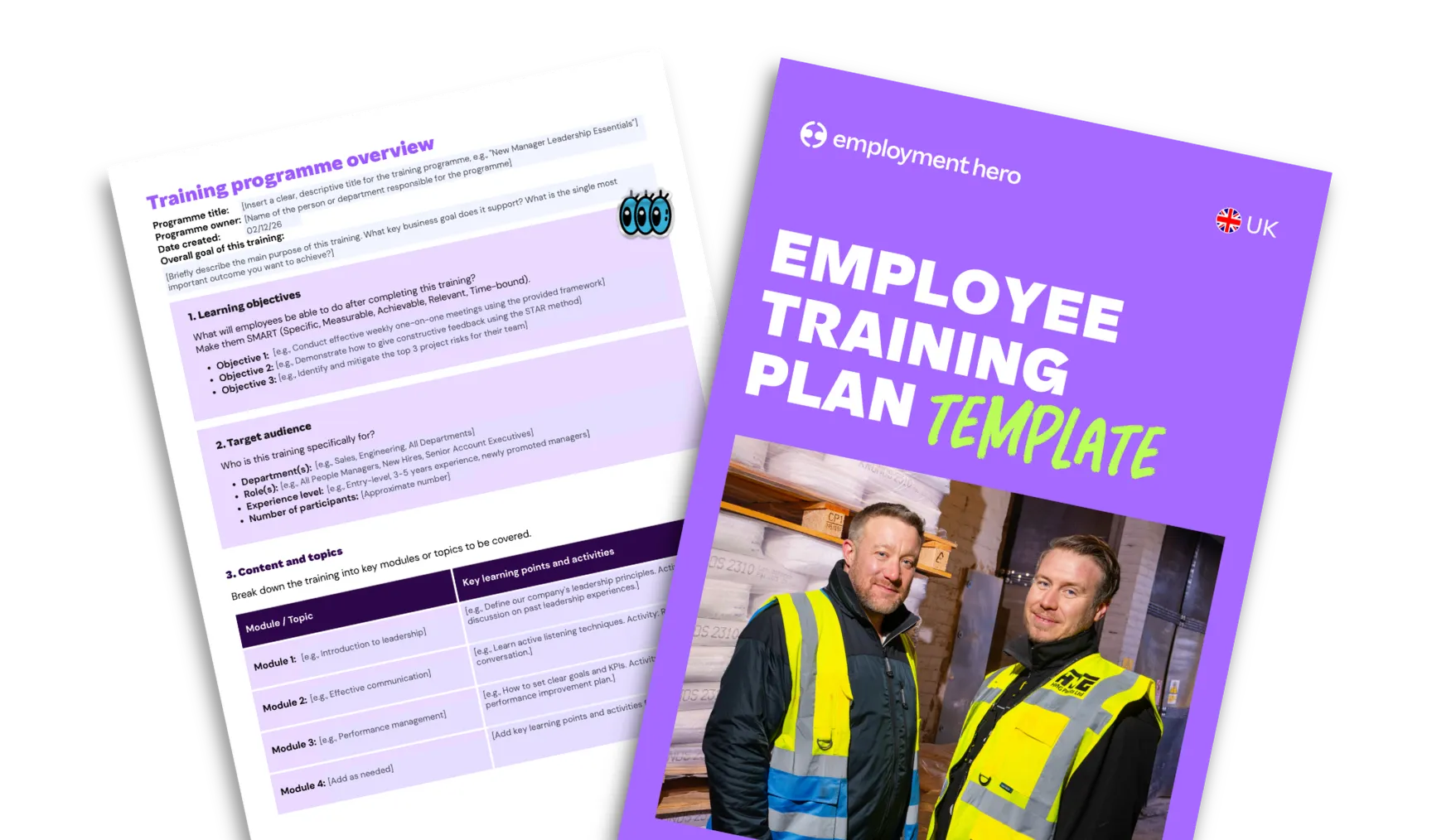Payroll Year End Checklist For HR Professionals
Published
Payroll Year End Checklist For HR Professionals
Published
1 min read
Payroll Year End. It’s a phrase that can make even the most seasoned business owners, HR and payroll professionals wince. Juggling high-value HR tasks with the intense, detail-heavy work of closing out the financial year is a massive challenge. And it’s easy to feel overwhelmed by the sheer volume of ta sks, deadlines and payroll compliance requirements.
But don’t sweat it, our Payroll End Year End checklist’s got you covered.
This checklist is your key to not just surviving, but thriving. We’ll walk you through everything you need to know for the 2026/27 UK Payroll Year End, from crucial dates to essential forms and strategic tips.
What’s included in the Payroll Year End Checklist?
- How to prepare for Payroll Year End.
- What information you’ll need to complete your submission.
- Forms you’ll need to submit to HMRC.
- How to start the new tax year off right.
Why you need a Payroll Year End checklist
Let’s cut to the chase. Managing payroll is a huge responsibility and the stakes are high. A simple mistake can lead to costly fines, unhappy employees, and compliance headaches. This is why getting it right isn’t negotiable.
But with so many moving parts, it’s easy for things to slip through the cracks. A Payroll Year End checklist provides a simple framework to make sure all essential tasks are complete.
Using a dedicated Payroll Year End Checklist helps you:
- Stay on track: Easily monitor your progress and ensure no critical step is missed.
- Avoid costly errors: Systematically cover all your bases to prevent common payroll mistakes.
- Support compliance: Keep up with HMRC requirements without the last-minute scramble.
- Free up your time: Streamline the process so you can focus on more strategic HR initiatives.
Think of it as your command centre for a smooth and successful year-end submission.
When is the 2024/5 End of Financial Year (EOFY) in the UK?
In the UK, the fiscal year runs from the 6th of April to the 5th of April in the following year. This means that April 6th 2026 will be the first day of the new tax year, marking your new VAT return period and tax year.
Self employed people, sole traders and partnerships follow the fiscal year, as does the PAYE (Pay as You Earn) system. Companies may have a different financial year as they can choose any period for their accounting year, accounting years for companies run from the date the company started trading as specified when they registered with Companies House.
So depending on whether you’re a company, sole trader, partnership or just running PAYE, there are specific tasks you’ll need to do at the end of every financial year.
Key dates for Payroll Year End 2025/26
Timing is everything. Missing a deadline isn’t an option, so mark your calendar with these essential dates for the 2025/26 tax year.
| Date | What happens |
| 5th April 2026 | The 2025/26 tax year officially ends. |
| 6th April 2026 | The new tax year begins |
| 19th April 2026 | The deadline for the final Full Payment Submission (FPS) of the previous tax year. |
| 22nd April 2026 | The deadline for month 12 PAYE. |
| 31st May 2026 | Ensure all employees have received their P60s by this date. |
| 6th July 2026 | The deadline to report on expenses and benefits and submit P11D and P11d(b) forms. |
| 22nd July 2026 | Payment for class 1A National Insurance contributions on Benefits in Kind must be submitted to HMRC. (Note: the deadline is 19th July if you aren’t using digital systems). |
Essential forms for Payroll Year End
As an employer, there are a few important forms to submit at the end of the financial year for payroll. Here’s a breakdown of what they are and their deadlines.
| Form | What it’s used for | Deadline |
| P60 | Summarises an employee’s total pay and deductions for the tax year. | Must be provided to employees by 31 May. |
| P11D | Reports expenses, benefits or allowances provided to employees or directors during the tax year. | Must be submitted by 6 July. |
| P11D(b) | Reports the employer’s Class 1A National Insurance contributions on expenses, benefits or allowances. | Must be submitted by 6 July. |
| Full Payment Submission (FPS) | Reports pay and deductions to HMRC every time an employee is paid. | Must be filed on or before each pay date. |
| Employer Payment Summary (EPS) | Used to adjust a previous FPS, claim statutory payments, or recover CIS deductions. | Submitted as needed, depending on circumstances. |
Common payroll deductions in the UK
Payroll deductions are a standard part of running payroll, but it’s always good to have a clear understanding of the most common ones. These are deductions made from an employee’s gross pay.
The most frequent deductions include:
- Income Tax (PAYE).
- National Insurance.
- Pension contributions.
- Student loan repayments.
- Childcare vouchers.
The specific deductions will always depend on the individual circumstances of each employee and your company’s policies.
Beyond the forms: Other EOFY admin tasks
For business owners, HR and payroll professionals, Payroll Year End is the perfect time to take stock and perform some essential housekeeping. These tasks go beyond payroll submissions and set your business up for success in the year ahead.
First, conduct a data audit. Is your employee data accurate across all systems? Check everything from visa statuses and contact details to employment agreements. Getting this right prevents future headaches.
It’s also important to remember that the new National Living Wage and National Minimum Wage rates come into effect in April alongside the new financial year. To ensure you’re staying compliant, make sure to review employee pay and make adjustments if any employees are not meeting the new rates.
From a broader HR perspective, this is your chance to look forward. Review company and individual goals for the next year. Is it time to refresh your company values or overhaul your performance review system? Use this period to ensure your team is supported and aligned for the journey ahead.
How SMEs can prepare for the next financial year
For SMEs, the End of Financial Year can feel quite demanding. The good news is that there are ways to make it less stressful. Here are a few tips to help you feel prepared for the 2026/27 financial year.
Make record-keeping a priority
If the thought of hunting through piles of paper or disorganized digital folders fills you with dread (it fills us with dread, too), it’s time for a change. Effective data storage shouldn’t be an afterthought, it should be intentional.
But we get it, record-keeping can feel like a full time job in itself, and who has time for that? Luckily, modern HR and payroll software is a game changer. It can easily and securely store data that can be accessed instantly.
This is not only helpful when it comes to end of year reporting, but all year round. Access to accurate data at the click of a button, what’s not to like?
Stay on top of deadlines
There are plenty of dates to be aware of when it comes to running a business, from public holidays to payroll submission dates to tax deadlines. Download our checklist for a handy reminder of all your payroll deadlines, all in one place.
See the new financial year as an opportunity
For many business owners, HR professionals and payroll professionals EOFY can feel like a whole lot of admin and a whole lot of stress. But it’s time to shift your mindset.
Instead of viewing EOFY as a mountain of admin, see it as a fresh start. The End of Financial Year is an opportunity to get prepared and do things better. You have a clear deadline, 6th April 2026, to implement changes that will make your life easier. What can you do before then to streamline your payroll and employment processes?
Employment Hero: Your partner for Payroll Year End
Managing payroll cycle tasks, keeping up with compliance and hitting every deadline can feel like a constant battle. Employment Hero’s Employment Operating System (OS) is built to change that.
We’ve integrated the traditional isolated elements of employment into one seamless, intelligent platform. Our system uses automation to handle repetitive payroll tasks, collate data accurately and help you stay on top of compliance. It’s designed to give you back your time and empower you to focus on what truly matters, growing your business and supporting your people.
Stop letting payroll run you. It’s time to reinvent the way you work.
Register for the checklist
Related Resources
-
 Read more: EOFY HR Audit: What to Review in March
Read more: EOFY HR Audit: What to Review in MarchEOFY HR Audit: What to Review in March
Complete a EOFY HR audit with our practical checklist. Review compliance, people processes and compliance to reduce risk before the…
-
 Read more: How to Choose an HR System: A 2026 Buyer’s Checklist
Read more: How to Choose an HR System: A 2026 Buyer’s ChecklistHow to Choose an HR System: A 2026 Buyer’s Checklist
HR software is more than features. Discover how the right system can streamline operations, boost efficiency and future-proof workforce management.
-
 Read more: How to Create an Employee Training Plan: Template & Guide
Read more: How to Create an Employee Training Plan: Template & GuideHow to Create an Employee Training Plan: Template & Guide
Ready to build a training program that drives results? Learn how to create an effective employee training outline that aligns…



















